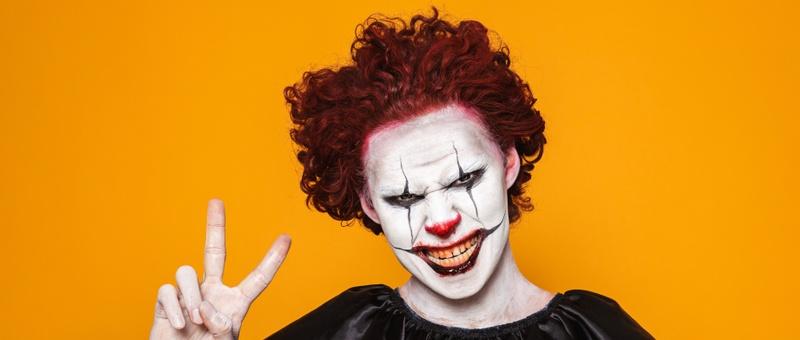
Pourquoi utilisons-nous l'humour noir comme mécanisme d'adaptation ?
Peer reviewed by Dr Colin Tidy, MRCGPLast updated by Victoria RawLast updated 12 Dec 2021
Répond aux besoins du patient lignes directrices éditoriales
- TéléchargerTélécharger
- Partager
- Langue
- Discussion
A little dark humour never hurt anyone... or does it? Most of us have cracked a taboo joke to poke fun at unsettling situations. However, using dark humour as a way to laugh through the tough stuff is on the rise. But why do we do this? And does dark humour actually help or hinder us?
Dans cet article :
Poursuivre la lecture ci-dessous
Qu'est-ce que l'humour noir ?
Dark humour has many names, including gallows humour, dark comedy and morbid humour. It refers to a style of comedy that makes light of a topic that is considered to be off limits. These topics are usually quite serious, disturbing or painful to discuss. This type of humour is not for everybody - some may find it funny, but others can find it offensive.
Writers and filmmakers have been using dark comedy for decades, typically focusing on themes such as death, crime, poverty, war, violence, suicide, racism, misogyny, sexuality and other forms of discrimination.
However, dark humour now seems to have taken on a new life with the growth of the internet and social media, and the way it is used by young people. It's even used by brands as a form of marketing and a way of connecting with an audience. Nowadays, people use dark humour to poke fun at their own lives, whereas in the past, it may have been more targeted at others.
One famous example of dark comedy comes from Oscar Wilde on his deathbed: "Either that wallpaper goes or I do."
Pourquoi utilisons-nous l'humour noir comme mécanisme d'adaptation ?
Claire Brummell from The Universal Needs is an expert in human behaviour. She says, when we are in a position of coping, it's because one or more of our needs are being compromised in some way.
"It could be a period of intense grief, or overwhelming stress. We might have been through a trauma - the list goes on," she explains. "So the things that we use to try to cope are behaviours that we believe, consciously or subconsciously, will either stop those needs from being impacted, or will meet them in some way."
Dans le cas de l'humour noir, il y a quelques besoins que les gens ont tendance à essayer de satisfaire inconsciemment lorsqu'ils l'utilisent comme mécanisme d'adaptation. Brummell explique quels sont ces besoins.
Expérience et expression émotionnelles
"The first need we are trying to meet with dark humour is our desire to experience and express the full spectrum of emotion," says Brummell. "At times when we are engaging in dark humour, it's often because we are having an overwhelming experience of the more 'negative' or challenging emotions, such as grief, sadness, and anxiety. When it feels like this is all we are experiencing, dark humour can be a way of trying to welcome in other emotions, such as amusement or some sort of cheer, so we are no longer only battling with the more challenging emotions."
She adds that dark humour is a way to not feel like you are drowning in difficult emotions, because there is something else being felt too.
Pouvoir personnel
This need relates to our personal feeling of empowerment and our ability to create more of what we want in our lives. Brummell explains that when we feel the desire to engage in dark humour, we are in a situation where we might be feeling out of control or powerless.
"This can happen when we have lost someone we love, perhaps we are going through a break-up, or dealing with a serious medical diagnosis," she says. "Whatever it is, the situation is one where we don't feel in control. The use of dark humour can, if nothing else, offer a chance to choose how we respond to what is going on. It can make us feel a little more in control than we otherwise would have."
Amour
The third and final need that we can be trying to meet with dark humour, is our need for love. This is the human need to connect with ourselves and others.
Often at times of great stress or trauma, we can feel very isolated and as though no one really understands what we are going through. While some people know exactly what to say to comfort someone during difficult times, it isn't always easy. When someone doesn't know how to deal with what a loved one is going through, it can cause them to pull back out of their own discomfort. In this instance, the person struggling might use dark humour to connect.
"Using dark humour to connect with others doesn't deny the darkness that is present in our situation," shares Brummell. "However, it can be an attempt to connect at a more surface level in a situation where we feel the opportunity or desire is not present to connect at a deeper level. In short, to stop us from feeling so alone."
Poursuivre la lecture ci-dessous
L'impact négatif de l'humour noir
Brummell explique que si l'humour noir peut nous soulager et nous rapprocher des autres dans les moments difficiles, cela peut avoir un coût. Alors que nous utilisons l'humour noir pour répondre à certains besoins, il peut aussi avoir un impact négatif sur nos besoins, ce dont nous ne nous rendons pas forcément compte.
"We are usually just focused on trying to minimise the impact of the tough situation on ourselves, so anything that offers us any kind of relief can seem like a good idea. But not everyone is comfortable with dark humour," she says.
"La réalité est que l'humour noir peut parfois créer une distance entre nous et les autres, malgré nos tentatives de rapprochement. Lorsque nous pratiquons l'humour noir, en fonction de la réaction de la personne, cela peut rendre les choses gênantes ou éloigner ceux dont nous avons le plus besoin.
When dark humour offends or upsets others, it can cause them great emotional stress. Perhaps this comes from a place of love, as they want to support you through difficult times but don't know how. Or, it could feel like a personal attack, especially if dark humour comments on something someone else struggles with or a part of their identity. We unintentionally might cause upset to others when using dark humour, because we are so caught up in our own problems. However, even if we are comfortable with the uncomfortable jokes, that doesn't mean everyone else will be.
"It can also keep us stuck in the dark patch of what we are going through, as that becomes the focus of every aspect of our behaviour, which can be overwhelming," Brummell says. "Dark humour can essentially become your personality."
As well as that, constantly using dark humour as a coping mechanism means it can become a mask for how we are feeling deep down. When we are putting on a front in this way, portraying to people that we are fine because we can crack jokes, we aren't actually addressing our problems. Suppressing our true feelings can only cause them to arise much more aggressively later on, perhaps when we suddenly find ourselves alone or dark humour is no longer an option. This can make them much more difficult to deal with if we've been putting it off.
L'humour noir est-il bon ou mauvais ?
Brummell admits that dark humour is neither good nor bad - it depends how it is used.
"Dark humour is a tool that can be used to great effect while navigating some of the difficult times in our lives. However, it can also set our healing back. As with most coping mechanisms in life, it's how you use it that makes the difference. For example, we might go out drinking following a relationship break-up, which there is nothing wrong with," she concludes.
"Cependant, c'est lorsqu'on devient dépendant de l'alcool pour s'évader et se réconforter qu'un problème se pose. De même, l'humour noir peut être drôle et nous remonter le moral, mais en abuser au point de repousser les gens et de refuser d'accepter ce que nous vivons peut causer des problèmes".
Choix des patients pour Le bien-être mental

Santé mentale
Les raisons de l'échec des résolutions du Nouvel An - et ce que vous pouvez faire pour y remédier
Quelles que soient nos bonnes intentions en début d'année, nous nous mettons parfois une pression énorme pour tenir nos résolutions du nouvel an. Le fait de ne pas répondre à nos propres attentes peut nous amener à les abandonner complètement, ce qui a des répercussions sur notre santé mentale. Dans ce cas, que peut-on faire pour s'assurer que l'on tient ses objectifs pour l'année ?
par Rose Butcher

Santé mentale
La musique de Noël est-elle bonne ou mauvaise pour la santé mentale ?
C'est la période de l'année où tous les magasins et cafés diffusent un flot ininterrompu de musique de Noël. Certains adorent, d'autres détestent, mais quoi qu'il en soit, il est impossible d'échapper à Mariah Carey, Wham et Slade. Si les chansons de Noël peuvent être festives, elles peuvent aussi avoir un effet négatif sur notre santé mentale, en particulier si elles sont jouées en boucle.
par Lydia Smith
Historique de l'article
Les informations contenues dans cette page ont été évaluées par des cliniciens qualifiés.
Prochaine révision prévue : 23 novembre 2028
12 Décembre 2021 | Dernière version
12 Décembre 2021 | Publié à l'origine
Auteur: :
Emily Jane Bashforth

Demandez, partagez, connectez-vous.
Parcourez les discussions, posez des questions et partagez vos expériences sur des centaines de sujets liés à la santé.

Vous ne vous sentez pas bien ?
Évaluez gratuitement vos symptômes en ligne
Inscrivez-vous à la newsletter destinée aux patients
Votre dose hebdomadaire de conseils santé clairs et fiables, rédigés pour vous aider à vous sentir informé, confiant et maître de la situation.
En vous abonnant, vous acceptez notre politique de confidentialité. Vous pouvez vous désabonner à tout moment. Nous ne vendons jamais vos données.